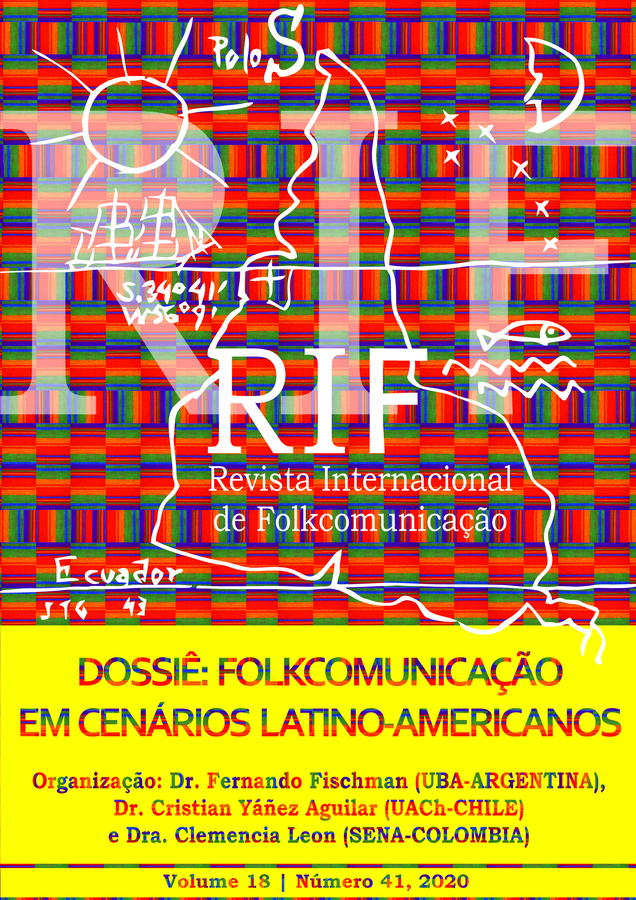A folkcomunicação como estratégia de resistência dos grupos marginalizados: um estudo de caso de uma comunidade de catadores de caranguejo em Aracaju
DOI:
https://doi.org/10.5212/RIF.v.18.i41.0007Resumo
O presente artigo tem como objetivo analisar como a Folkcomunicação serve de estratégia de resistência dos grupos marginalizados, a partir de um estudo de caso da comunidade do Povoado Coqueiro, localizada na Região Metropolitana de Aracaju (RMA). Deste modo, foram analisadas entrevistas semiestruturadas coletadas na comunidade, a fim de entender como os catadores enxergam o processo midiático na preservação de sua identidade. Constatamos que a comunicação massiva segue uma lógica que não condiz com a realidade cultural da comunidade e a população local segue indiferente, na construção de suas próprias expressões de resistência. Aracaju; Caranguejo; Identidade; Folkcomunicação; Grupos marginalizados.
Downloads
Downloads
Publicado
Como Citar
Edição
Seção
Licença

Este obra está licenciado com uma Licença Creative Commons Atribuição 4.0 Internacional.
Os autores são responsáveis, em qualquer que seja o formato do texto, pelas opiniões expressas ou indiretas presentes em seus respectivos trabalhos, não endossáveis pelo Conselho Editorial e pelos editores da Revista, bem como pela autenticidade do trabalho. Ao publicar trabalhos na Revista Internacional de Folkcomunicação, os autores cedem automaticamente os direitos autorais à publicação para veiculação das produções acadêmicas, sem ônus para a Revista. Os autores detêm os direitos autorais do texto para o caso de publicações posteriores e concedem à Revista Internacional de Folkcomunicação o direito de primeira publicação, com o trabalho simultaneamente licenciado sob a Creative Commons Attribution License, que permite o compartilhamento do trabalho com reconhecimento da autoria e publicação inicial nesta Revista. Por serem publicados em revista de acesso livre, os artigos são de uso gratuito, com atribuições próprias, em atividades educacionais e não-comerciais, sendo permitida a publicação simultânea em repositórios institucionais.































